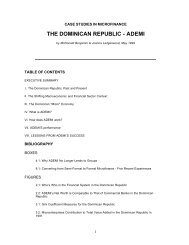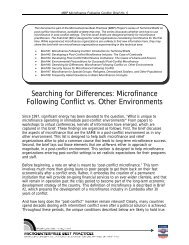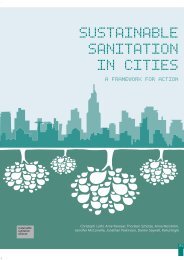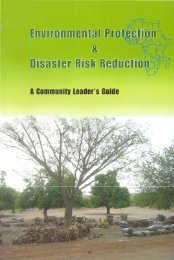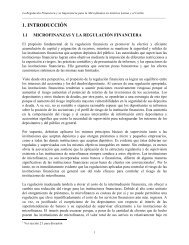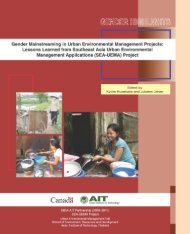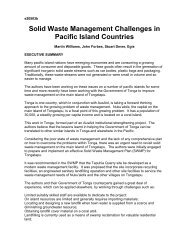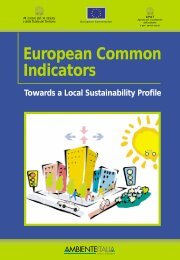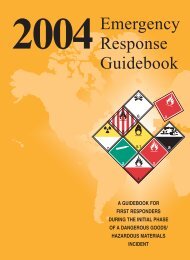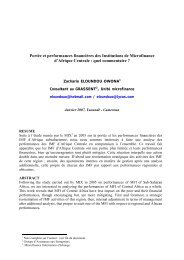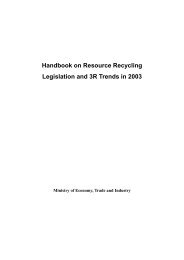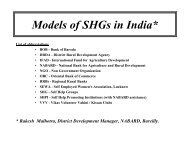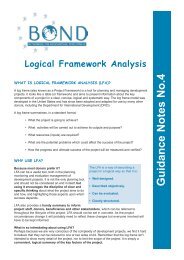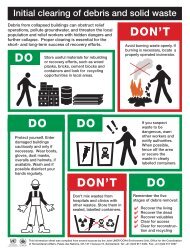The International Implementation Scheme (IIS) - Unesco
The International Implementation Scheme (IIS) - Unesco
The International Implementation Scheme (IIS) - Unesco
Create successful ePaper yourself
Turn your PDF publications into a flip-book with our unique Google optimized e-Paper software.
DESD <strong>International</strong> <strong>Implementation</strong> <strong>Scheme</strong> (<strong>IIS</strong>)<br />
Earth Charter presents a global vision, which integrates these concerns and emphasises how<br />
critical the current moment in history is for its realisation. 7<br />
<strong>The</strong> Earth Charter<br />
<strong>The</strong> Earth Charter is the product of a decade long worldwide, cross-cultural, civil society<br />
dialogue on common goals and shared values, offering an inclusive understanding of<br />
sustainable development.<br />
• It provides an excellent example of an inclusive vision of the fundamental principles for<br />
building a just, sustainable, and peaceful world.<br />
• Its principles build upon international, environmental conservation, and sustainable<br />
development law and the various UN meetings that took place in the 1990s. It<br />
endeavors to consolidate and extend a number international law principles reflecting<br />
the emerging consensus in global civil society.<br />
• It was endorsed by the 2003 UNESCO General Conference as an important ethical<br />
framework for sustainable development and a valuable teaching tool.<br />
• It sets forth a concise formulation of the meaning of sustainable living and<br />
development.<br />
2.2 Education for sustainable development: promoting values<br />
Can education be considered an integral part of a strategy of sustainable development, and, if<br />
so, why is this the case? Sustainable development is essentially about relationships between<br />
people, and between people and their environment. In other words, it is a socio-cultural and<br />
economic concern. <strong>The</strong> human element is now widely recognised as the key variable in<br />
sustainable development, both in terms of reasons for unsustainable development and in terms<br />
of the hopes for sustainable development. Human relationships based on naked self-interest<br />
(greed, envy or lust for power, for example) maintain inequitable distribution of wealth, generate<br />
conflict and lead to scant regard for the future availability of natural resources. On the other<br />
hand, relationships characterised by justice, peace, and negotiated, mutual interests lead to<br />
greater equity, respect and understanding. It is these qualities that will underpin strategies of<br />
sustainable development.<br />
<strong>The</strong> underlying values which education for sustainable development must promote include at<br />
least the following:<br />
• Respect for the dignity and human rights of all people throughout the world and a<br />
commitment to social and economic justice for all;<br />
• Respect for the human rights of future generations and a commitment to<br />
intergenerational responsibility;<br />
• Respect and care for the greater community of life in all its diversity which involves the<br />
protection and restoration of the Earth’s ecosystems;<br />
• Respect for cultural diversity and a commitment to build locally and globally a culture of<br />
tolerance, non-violence and peace.<br />
Education alone is unlikely to inculcate values of this kind – if that were the case, the world<br />
would already be much farther down the road towards the practices of sustainable development.<br />
Nevertheless, education constitutes the central pillar of strategies to promote such values.<br />
Alongside positive spiritual motivations, education is our best chance of promoting and rooting<br />
the values and behaviours which sustainable development implies. As others have noted,<br />
‘transformative education is needed: education that helps bring about the fundamental changes<br />
7 www.earthcharter.org/<br />
16<br />
2005



